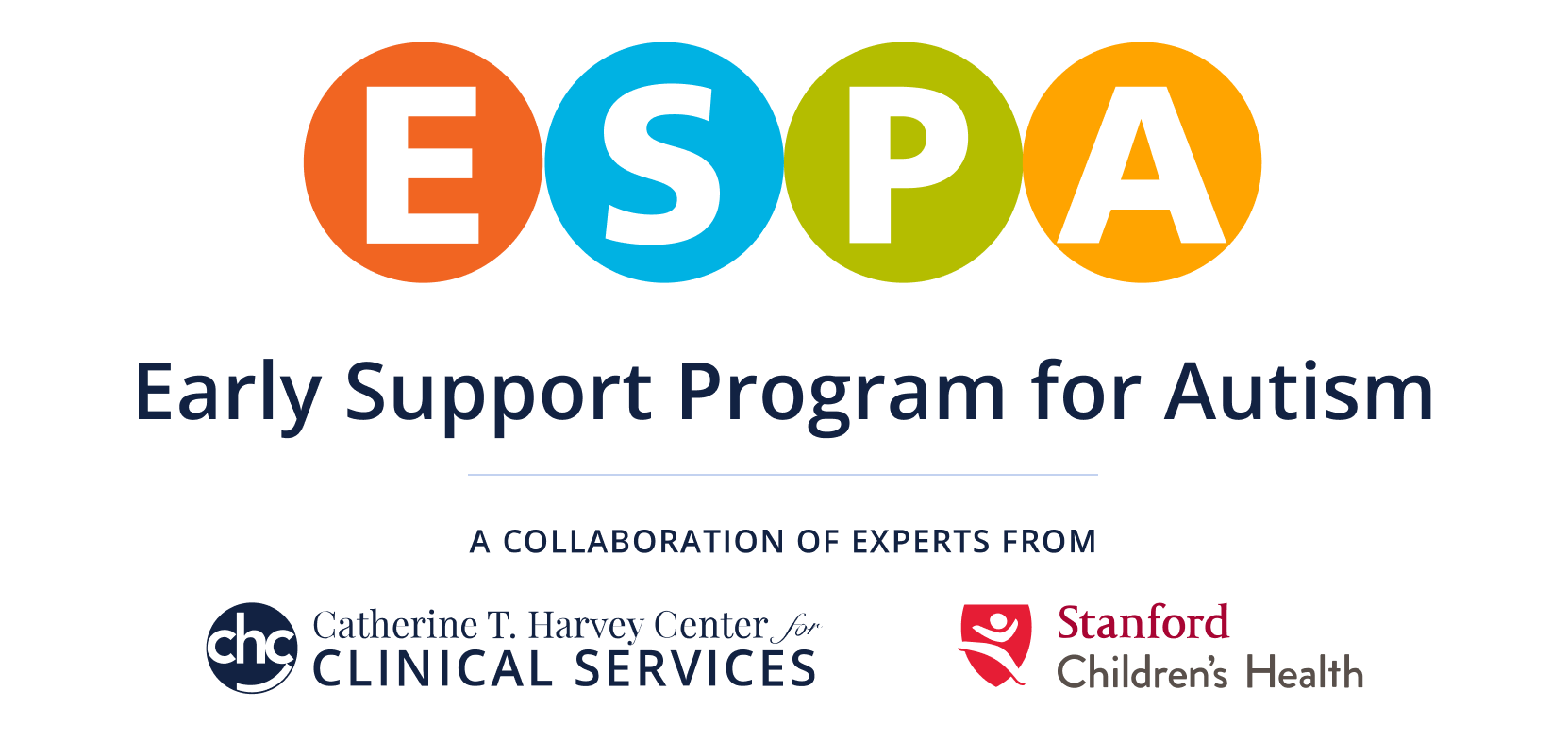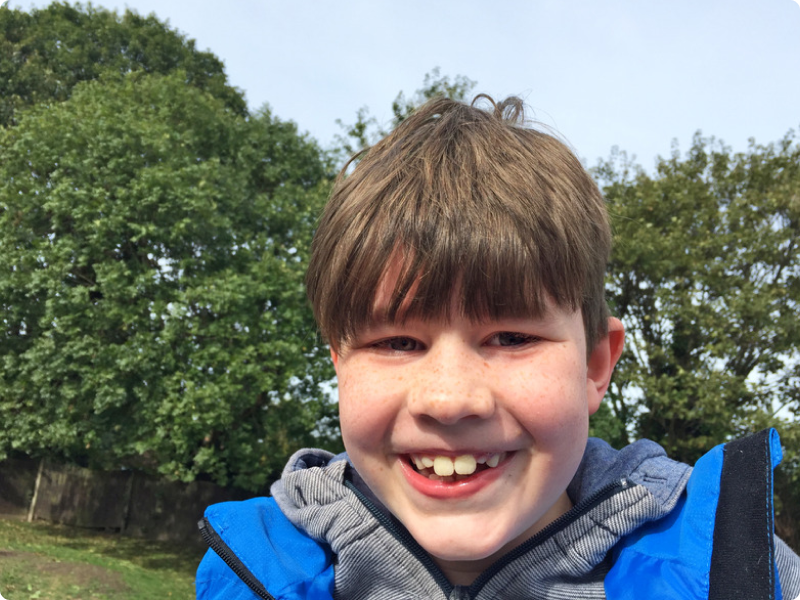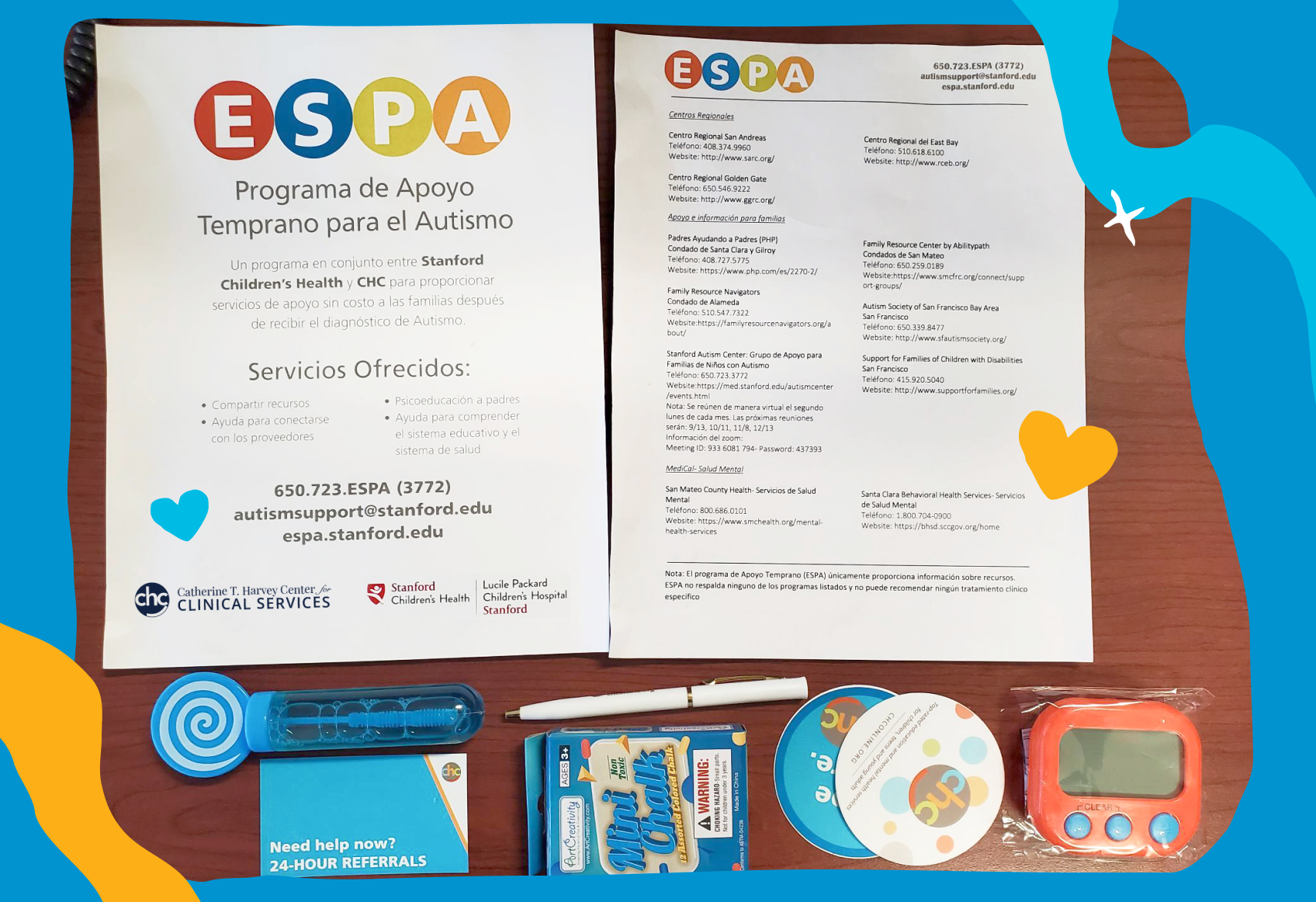Menu
In a mental health crisis? Call or text 988.
Get Help at CHC 
What are you looking for?

ESPA at Ten Years: A Stanford CHC Partnership
CHC’s Gina Baldi and Danna Torres Share How ESPA Helps Families with Children on the Autism Spectrum
This year marks a major milestone for the Early Support Program for Autism (ESPA), a long-standing partnership between CHC and Stanford. For ten years, ESPA has supported and guided families as they navigate the challenging period between diagnosis and treatment when facing an autism diagnosis for their child. With support of the John and Marcia Goldman Foundation, ESPA is free to families and has no waitlist. Parents and caregivers are connected to care coordinators who provide up-to-date information about doctors, therapists, treatment programs and other community resources. From there, families are referred to ESPA’s parent education.

Since 2013, ESPA has served nearly 5,000 families primarily from the San Francisco Bay Area, in both Spanish and English, through Clinical Care Coordination and the Parent Education Program. Families across the country and internationally have also received ESPA support.
CHC’s Gina Baldi, MEd, together with Christina Ardel, MA, BCBA from Stanford, helped build the foundation of the program a decade ago. While ESPA does not provide clinical treatment, it has become a necessary bridge for many families. Ardel and Baldi had found through their earlier work that when parents received an autism diagnosis they faced a lack of specialists, long waitlists, and the uncertainty of finding the right fit and/or expertise for their child. Families also experienced an emotional toll, frustration, and financial burden.

Says Baldi, “Quite often a parent will ask ‘what have you seen with other kids like mine?’ They are looking for answers about their child’s future, yet no one has a crystal ball to provide that information for them. I work with parents to let go of their worries about the future as much as possible, and we discuss ways to support their child’s development in the present. We work with parents one-on-one, so our discussions are individualized to fit the needs of their child and family as a whole unit.”
“I work with parents to let go of their worries about the future as much as possible, and we discuss ways to support their child’s development in the present.” —Gina Baldi, MEd
This free program, made possible through the generosity of the John and Marcia Goldman Foundation, has special meaning for Marcia Goldman, who has been an autism educator for nearly 40 years. “When a child is diagnosed with autism, parents feel like the clock is ticking to get help, but they often don’t get any guidance,” Goldman says. “Nobody should have to navigate an autism diagnosis alone. To be able to close that gap for families has been amazing.”

“When a child is diagnosed with autism, parents feel like the clock is ticking to get help, but they often don’t get any guidance. Nobody should have to navigate an autism diagnosis alone. To be able to close that gap for families has been amazing.” —Marcia Goldman, Autism educator
The workload is not slowing down and the demand is exponentially growing. That is due in part to parents recommending ESPA to other parents. In fact, the program has received calls from across the country and internationally, reaching as far as Asia, Europe, and Latin America.
CHC’s Danna Torres, MS, MFT, who splits her time between ESPA and CHC Ravenswood, is the parent educator for ESPA’s Spanish-speaking families. She has received calls from Mexico and Central America. “People that receive services here go back to visit their families and those family members find us. We’ve been able to reach families in rural areas who otherwise may not have access to educational resources. This could be due to financial obstacles, transportation or barriers to healthcare. They will tell me, ‘We have to drive two hours for our services each way and my child has high sensory needs. Driving on a rough road for hours can be hard for our family, and our school isn’t better equipped. I want to learn how I can support my child.’”
“We’ve been able to reach families in rural areas who otherwise may not have access to educational resources. This could be due to financial obstacles, transportation or barriers to healthcare.” —Danna Torres, MS, MFT
Torres deeply understands the cultural differences with some families, and she handles these cases with a lot of humility and compassion. “I provide parents with general information about autism and talk through strategies so that they can engage in meaningful play with their children. Parents build confidence and are able to better identify things like sensory seeking/aversion behaviors and what motivates their child while they seek services like ABA, speech or OT,” explains Torres.

ESPA Family Care Package
Empowering families with sound knowledge and skills is an important part of ESPA’s program. Families receive “care packages” that are developed and handpicked by the ESPA team to support them in accessing the ESPA education documents they review over the course of 4 classes. Items like chalk, bubbles and a timer are some simple and useful tools for parents and caregivers to use in connecting with their child. Says Torres, “The package and courses help parents to engage with their child and enter their world using play and exploration in a 1:1 setting. As an early support program, these items, resources and educational material are intended to help low-income families feel like they can begin to understand how to connect with their child as they continue to learn and connect to providers for services like Speech, OT, ABA and educational services.”
ESPA gives Baldi and Torres flexibility to meet parents where they are at, and it makes the experience deeply rewarding. Says Baldi, “We’re very flexible and supportive, and we have very caring people on board that want to do the work.” CHC looks forward to this continued partnership with Stanford and is grateful for the support of the John and Marcia Goldman Foundation.


